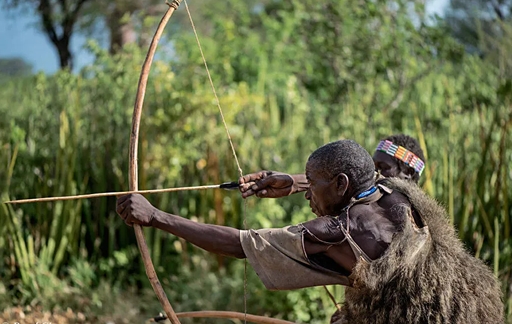
support@yorubalibrary.com
+2348073529208, 07038599574

Hunting has long been an essential part of Yoruba culture, providing sustenance, materials, and a means of livelihood. Yoruba traditional hunting techniques reflect the deep knowledge and skills passed down through generations. Today, let's explores the various methods, tools, and cultural significance of hunting in Yoruba society.
Historical Background
Traditional hunting in Yoruba culture is rooted in centuries-old practices that have been refined over time.
1. Ancestral Practice: Hunting was a crucial activity for the Yoruba ancestors, providing food and materials for clothing and tools. It was also a means of protecting the community from wild animals.
2. Cultural Importance: Hunting is not just a practical activity but also holds cultural and spiritual significance. It is often associated with bravery, skill, and wisdom.
Traditional Hunting Methods
Yoruba hunters use a variety of methods to track and capture their prey.
1. Tracking and Stalking: Hunters rely on their knowledge of animal behavior and the environment to track and stalk their prey. This method requires patience, stealth, and keen observation skills.
2. Trapping: Various traps are set to catch animals. These include pitfalls, snares, and deadfalls, which are strategically placed in areas frequented by animals.
3. Spears and Bows: Traditional weapons such as spears and bows are used for hunting. These weapons require great skill to use effectively, and their design has been perfected over generations.
4. Dogs: Hunting dogs are trained to assist in tracking and capturing game. These dogs are valued companions and are often considered part of the hunting team.
Tools and Equipment
Yoruba hunters utilize a range of tools and equipment to aid their hunting efforts.
1. Spears (Isin): Spears are crafted from durable wood and metal, with sharp tips designed for piercing. They are used for close-range attacks and to deliver a swift kill.
2. Bows and Arrows (Oko ati Osoro): Bows are made from flexible wood, and arrows are tipped with metal or sharpened wood. They are used for long-range hunting.
3. Traps (Pakute/Takute): Traps are ingeniously designed to capture animals without killing them, allowing hunters to secure fresh meat and fur.
4. Hunting Dogs (Aja Ode): Specially trained dogs assist in tracking and retrieving game. They are an invaluable part of the hunting process.
Cultural Significance
Hunting holds deep cultural and social significance in Yoruba society.
1. Rites of Passage: Hunting is often seen as a rite of passage for young men, symbolizing their transition into adulthood and their ability to provide for their families.
2. Festivals and Rituals: Hunting achievements are celebrated during festivals and rituals, with hunters being honored for their skills and contributions to the community.
3. Mythology and Folklore: Hunting is a common theme in Yoruba mythology and folklore, with many stories featuring heroic hunters and their adventures.
4. Social Status: Skilled hunters are highly respected in Yoruba society. Their expertise and success in hunting earn them a prominent place in the community.
Modern Adaptations
While traditional hunting techniques are still practiced, modern adaptations have also been adopted.
1. Conservation Efforts: In response to environmental changes and wildlife conservation efforts, some traditional hunting practices have been adapted to ensure sustainability and protect endangered species.
2. Education and Training: Modern training programs incorporate traditional knowledge with contemporary conservation practices, promoting responsible hunting and wildlife management.
3. Tourism: Traditional hunting techniques are showcased as part of cultural tourism, allowing visitors to learn about and appreciate Yoruba heritage.
Conclusion
Yoruba traditional hunting techniques are a testament to the skill, knowledge, and cultural richness of the Yoruba people. These practices, deeply rooted in history and tradition, continue to be a vital part of Yoruba culture. As hunting methods adapt to modern challenges, the essence of Yoruba hunting traditions remains a powerful symbol of resilience and cultural identity.

Learn about the Yoruba concept of Ìwà Pẹ̀lẹ́ (good…

Learn special praises for Divine Being and Creator…